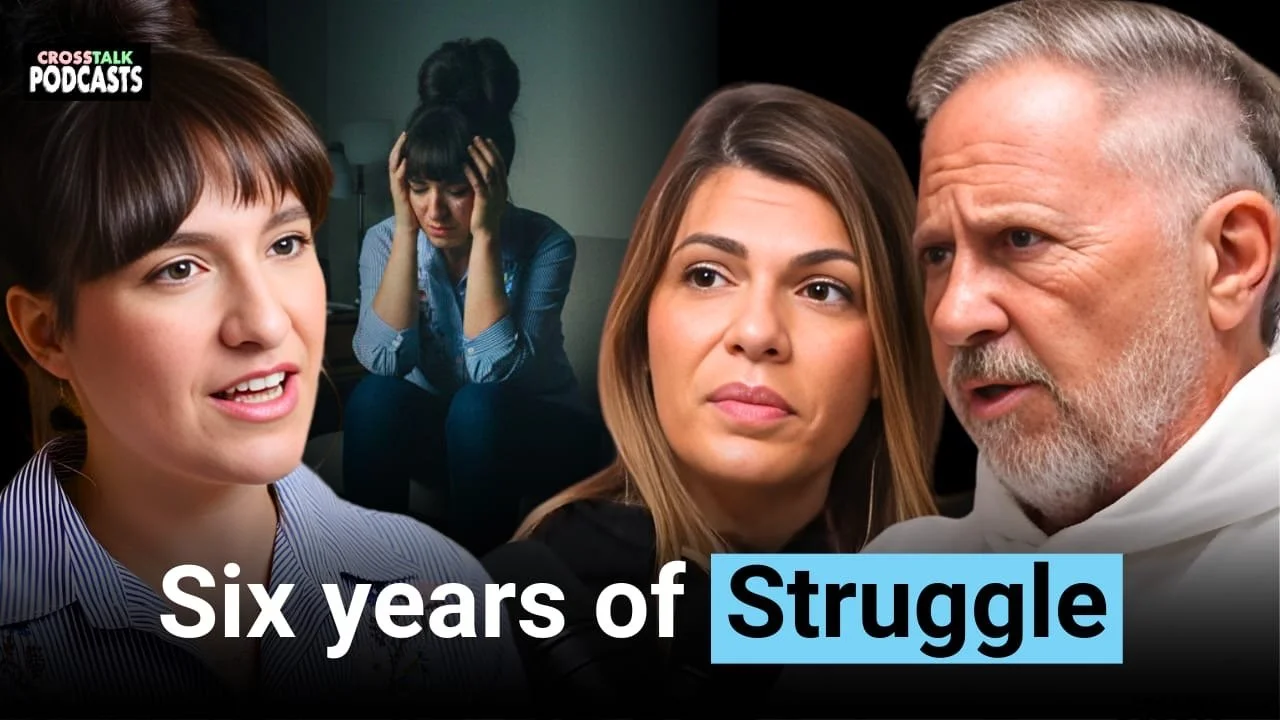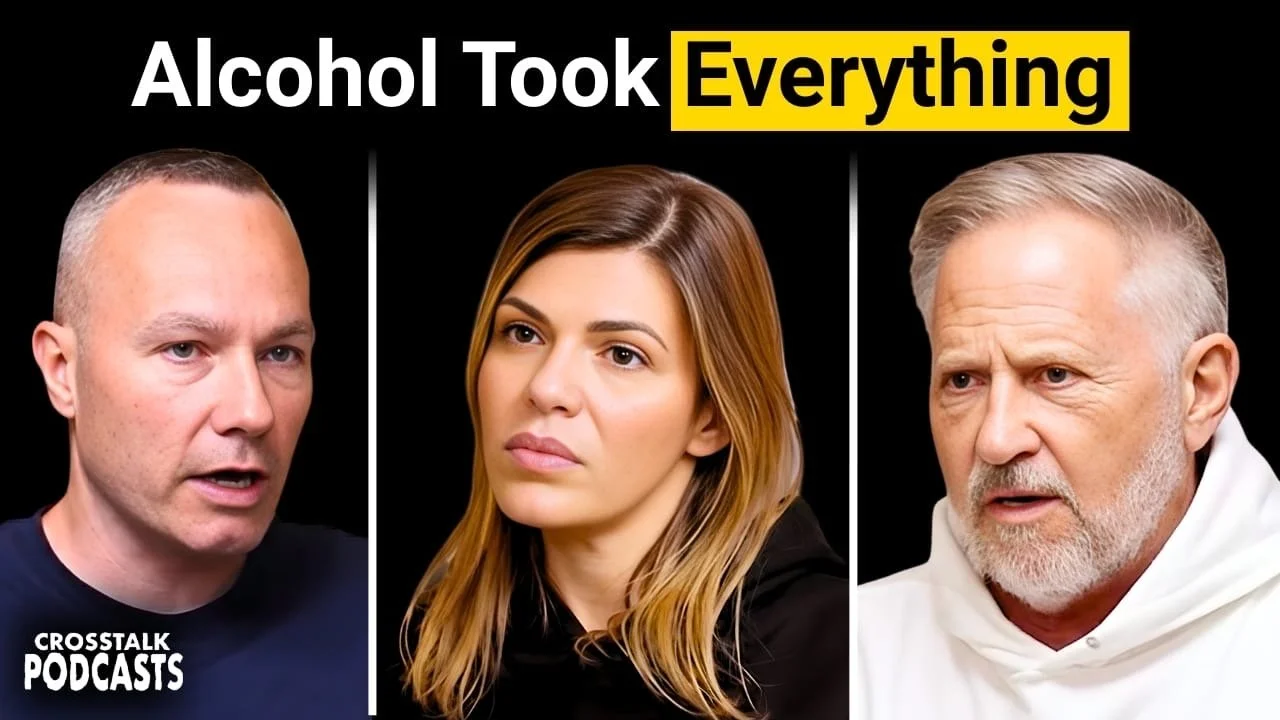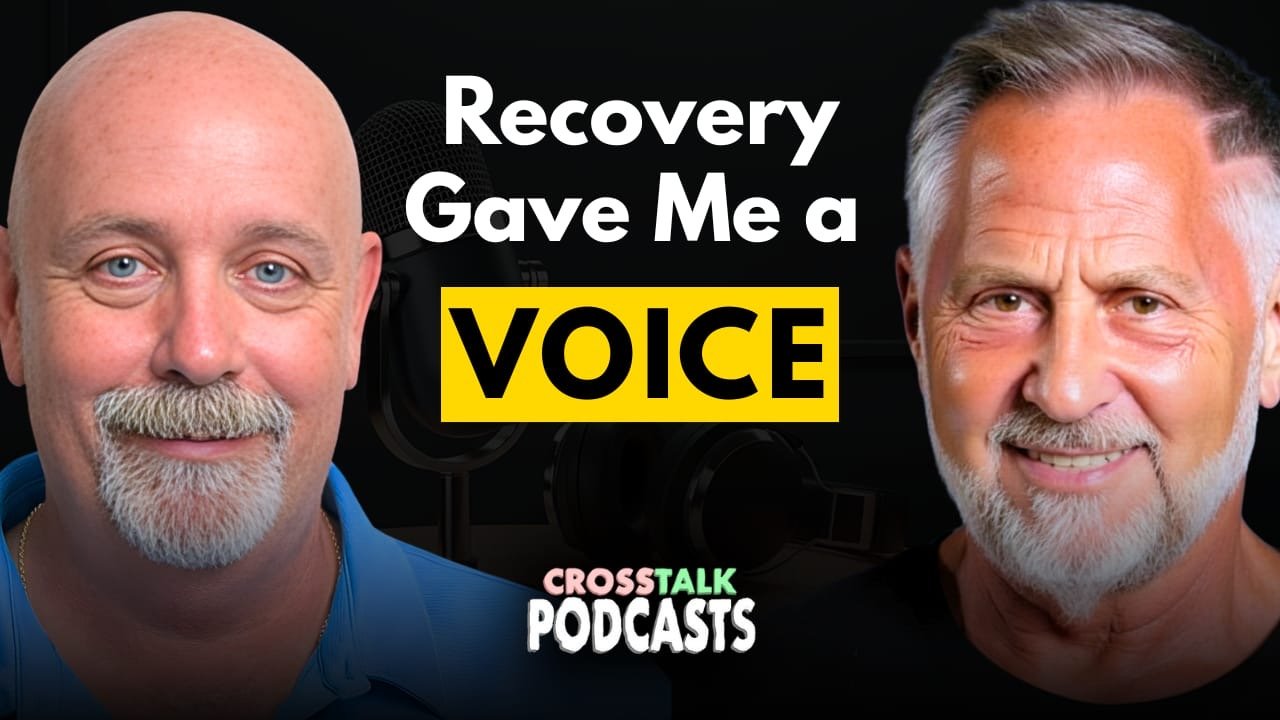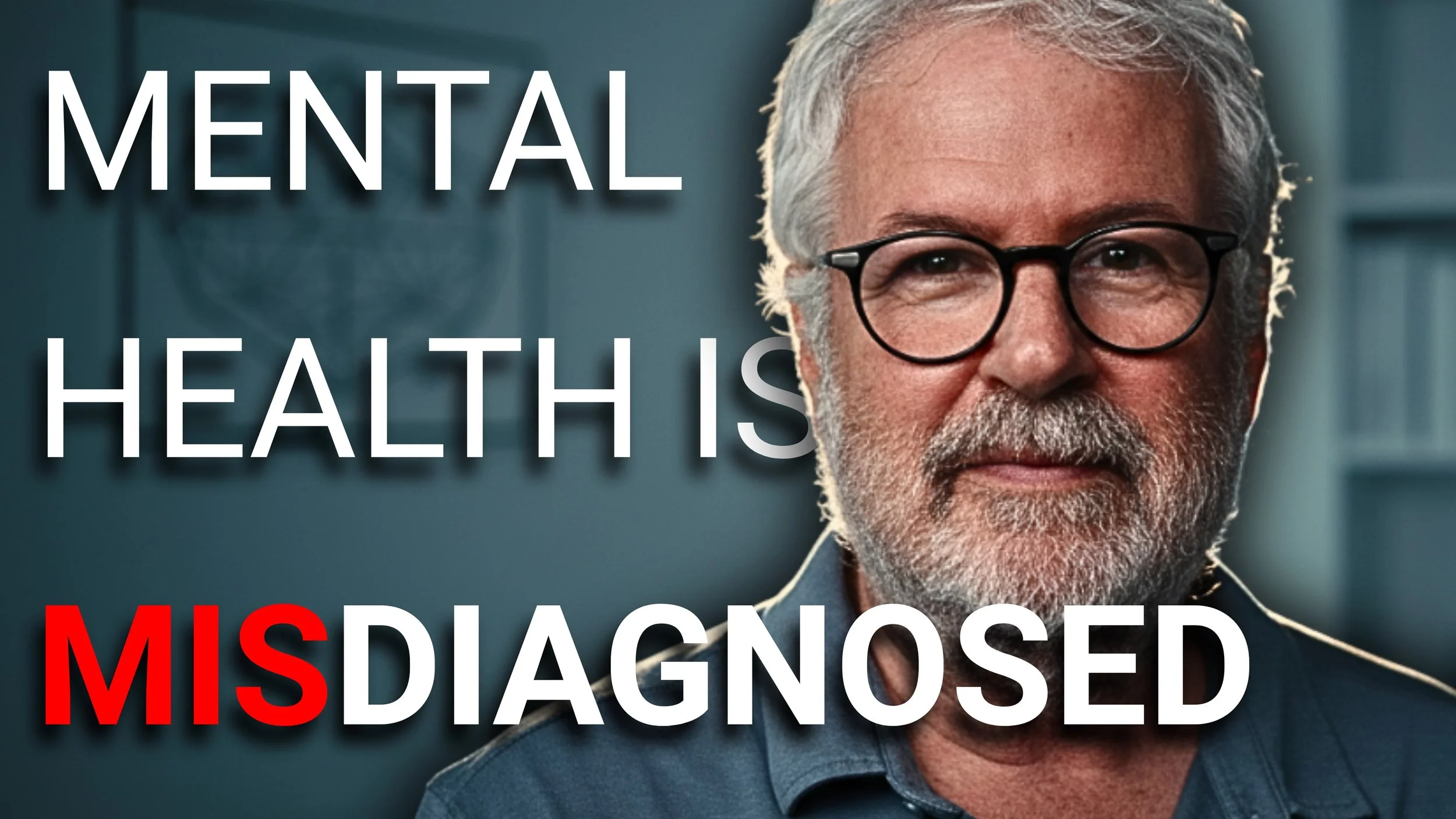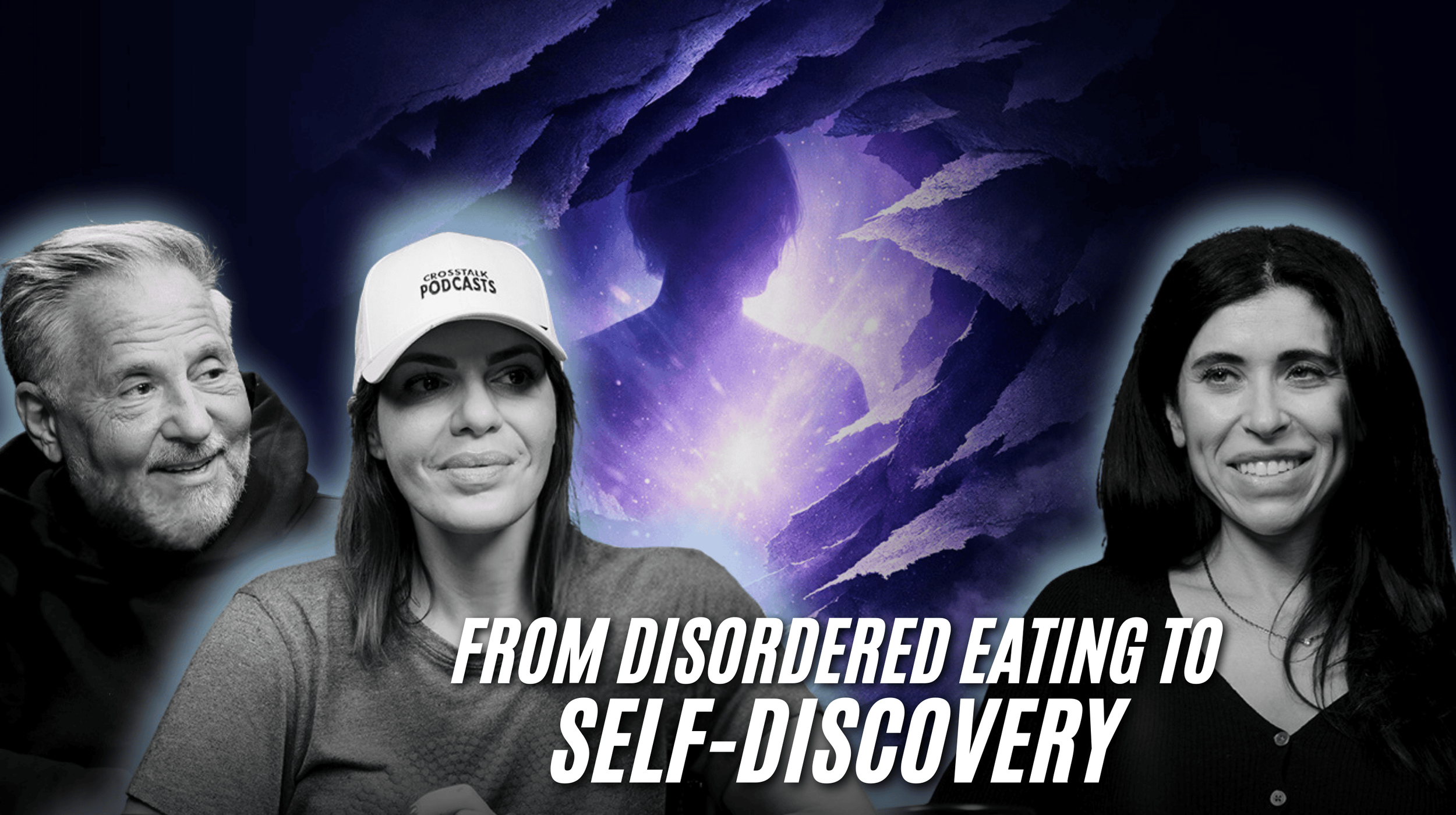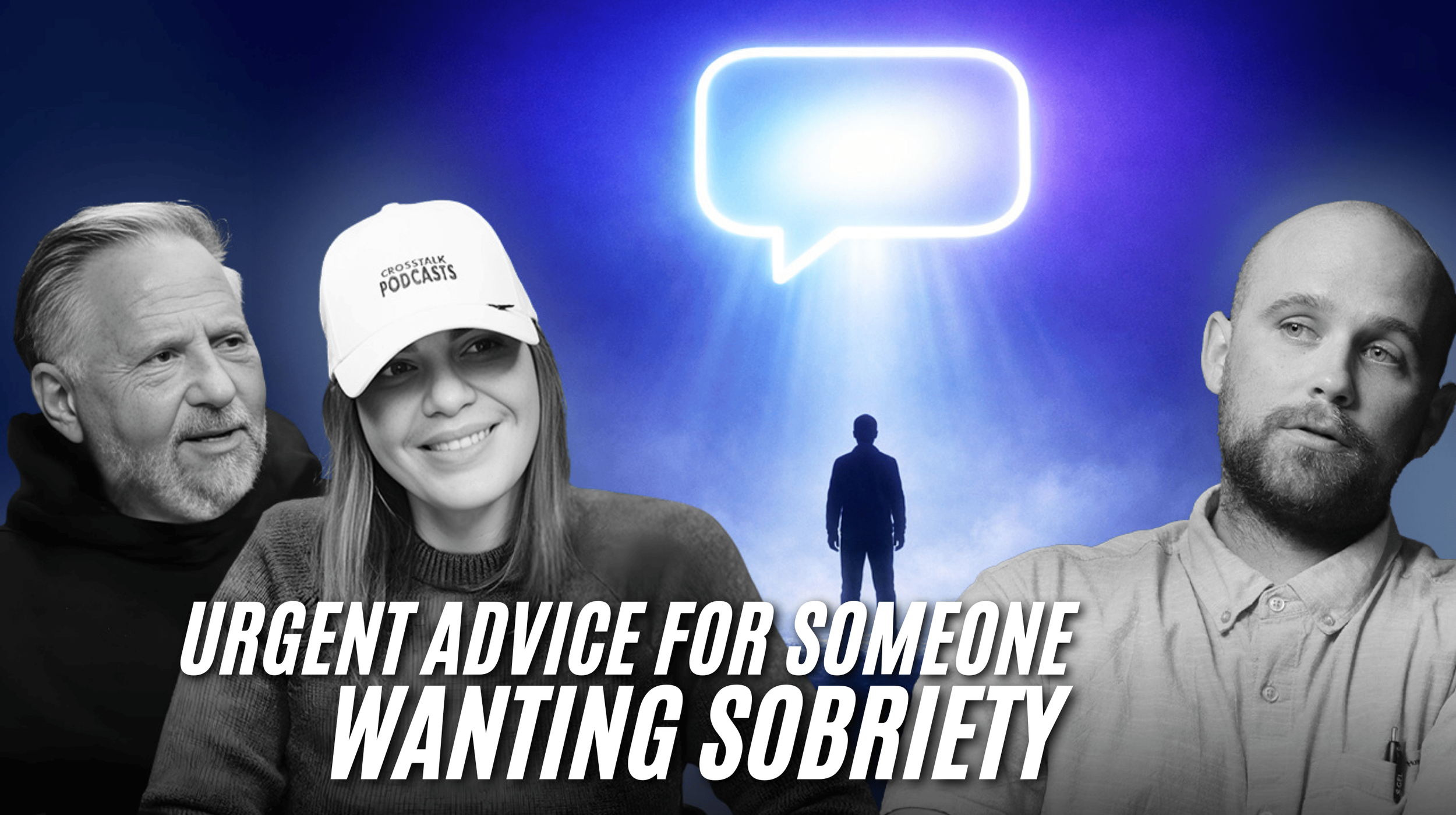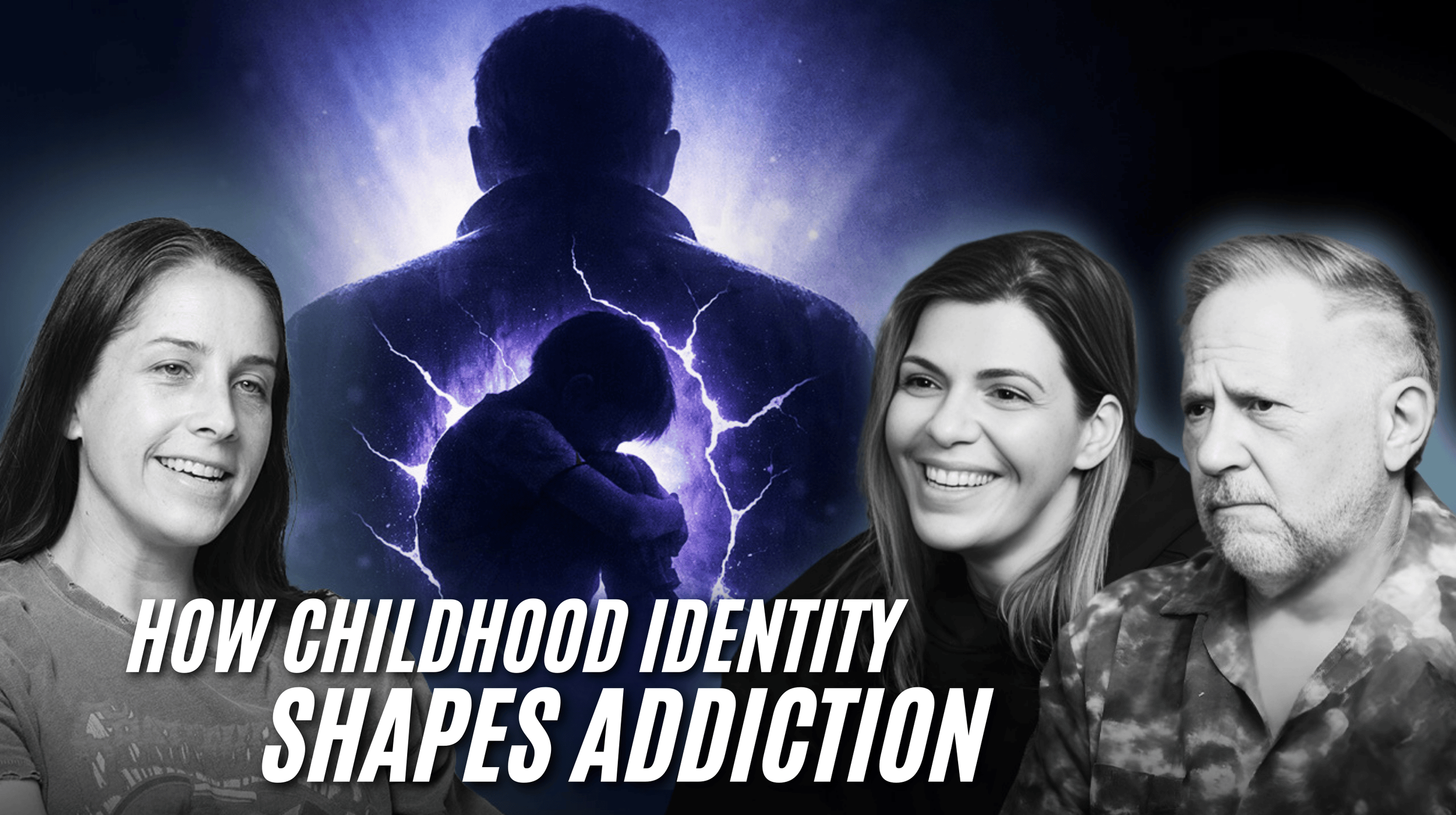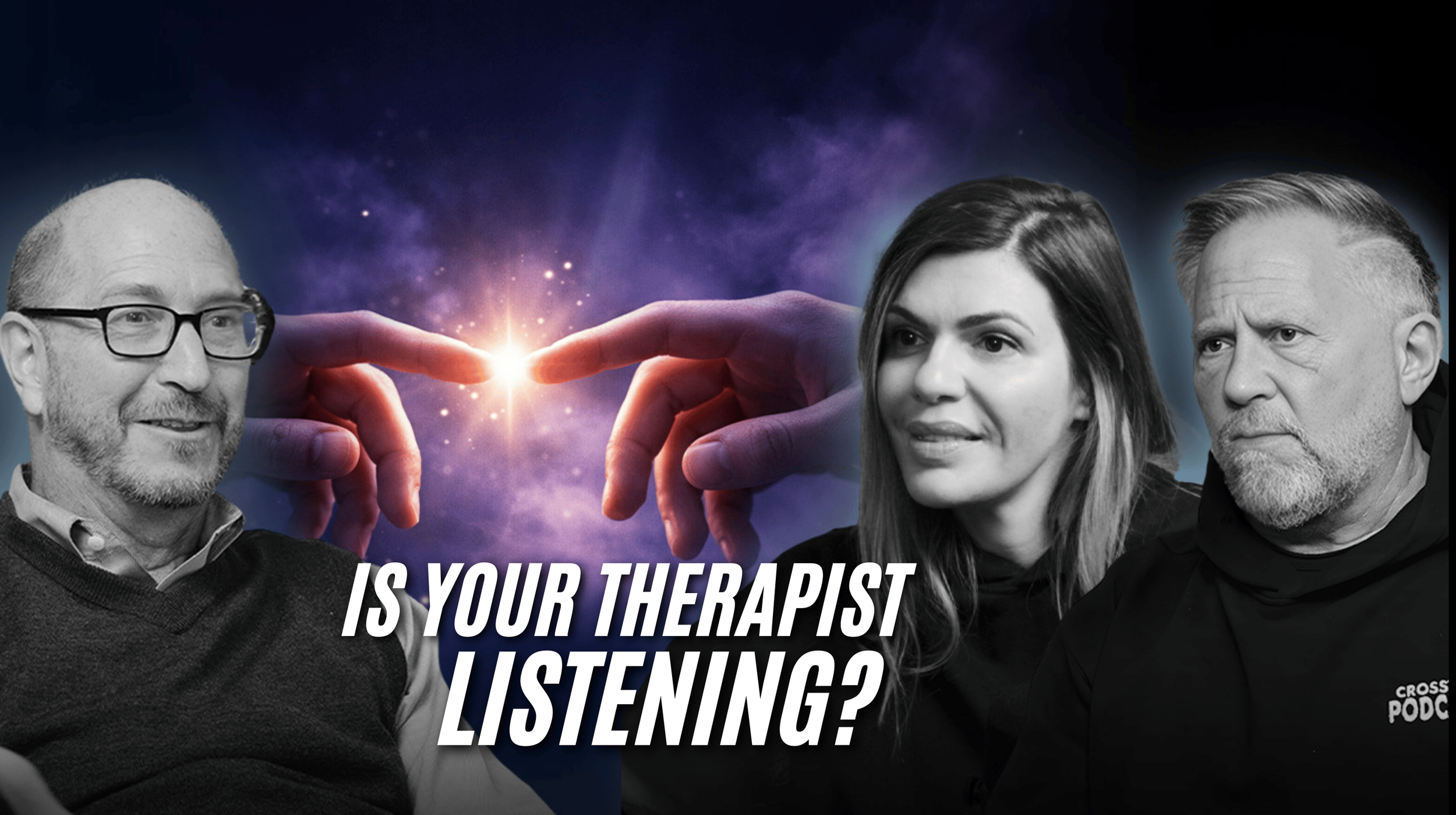Turning Grief Into a Beautiful Legacy | Jesse M.
Listen or watch on your favorite platforms
Jesse Money, daughter of legendary rock singer Eddie Money, shares a powerful and emotional journey through grief, identity loss, addiction, and the pressure of growing up in the spotlight. She opens up about early drinking, multiple rehabs, losing her father, and the heavy spiral that followed.
Growing up
Growing up in Malibu as the daughter of rock legend Eddie Money, Jesse’s earliest memories were shaped by tour buses, backstage lights, and a world where fame vibrated through every room. She describes those years as “growing up on stage,” performing with her father and watching the music industry up close. But beneath the glitter of that lifestyle, Jesse carried a quiet uneasiness — a persistent feeling of not fitting in, not knowing exactly who she was, and constantly trying to shape herself into someone the world would admire.
Her classmates saw her as the “rock star’s daughter,” but Jesse felt far from glamorous. She remembers desperately wanting to be accepted, trying to find her place among girls who didn’t understand her and crowds who didn’t really see her. “I didn’t know my identity then either,” she shared. “I always wanted to be accepted… I just wanted to be everybody’s friend.”
In high school, that longing for belonging collided with her first drink — a moment she remembers clearly, even if she’d rather forget the taste. “It was Captain Morgan… absolutely terrible,” she laughs. The rum wasn’t just alcohol; it was a ticket to a version of herself she thought she needed to be. Someone looser. Someone louder. Someone who matched the wild image of the rock-and-roll universe she grew up around. Inspired by idols like Janis Joplin, she began imagining that true singers, true performers, needed to carry pain, chaos, and whiskey in their hands. “I thought I had to live up to the expectation of being that wild child,” she admits. “Like, buckle up — we’re gonna get messed up.”
Though her father was in recovery and her mother didn’t drink at all, the world around her — touring, late nights, music culture — normalized alcohol in ways that made it both accessible and seductive. Before long, Jesse wasn’t drinking to fit in. She was drinking to feel alive. Drinking to escape. Drinking because it helped quiet the heavy emotions she didn’t yet understand.
First Use & Emotional Impact
That early exposure became a spark that later exploded into years of addiction. From her first drink, Jesse felt an immediate shift — a sense that alcohol gave her permission to feel bolder, freer, and more connected to her performer identity. “Once I started drinking alcohol, it added fuel to the fire,” she explained. “I felt more alive on stage… like I could live this rock-star life.”
But as she would later learn, those “alive” moments were only illusions. Alcohol began quietly rewriting her internal story, distancing her from her true self. She didn’t yet realize that every drink was a step toward emotional numbness, self-betrayal, and a growing inability to cope with life without a bottle in her hand. Looking back, she said:
“I wasn’t being myself when I was drinking… I was living in the shadows.”
The drinking wasn’t just about partying; it became a placeholder for identity. She felt different from everyone else — even before losing her father — and substances temporarily filled that void. Beneath the alcohol was a deep loneliness, a longing to be understood, and early signs of emotional pain she hadn’t yet learned to process.
Active Addiction: Running into the Fire
As she got older and tragedy hit her family, Jesse’s drinking and drug use intensified. The loss of her father shattered her anchor. “After my father passed, it was such a huge weight,” she said. “I had to figure out who I was without him… and I didn’t want to live.”
Grief and addiction tangled together, becoming a suffocating “dark cloud” that followed her everywhere. “The grief and addiction… they go hand in hand like the devil just grasps you,” she said. “Like, okay, you’re not going to make it through this.”
Her life began spiraling — rapidly and relentlessly.
She lost pets. Family members died. Loved ones slipped away one by one.
In her own words:
“All this dark sh*t started happening… dog died, uncle died, grandfather dying… grief and alcohol and drugs came into play hard.”
That grief drove her deeper into substance use, and substance use intensified the grief. She describes nights where she genuinely believed she might die — from overdose or despair. “There were moments where I thought, I’m going to die,” she shared. “The suicidal thoughts came in. I wasn’t caring.”
Addiction stripped her identity. She was no longer just “Eddie Money’s daughter.” She felt she was no one’s daughter. No one’s friend. No one worth saving.
But she wasn’t beyond repair. She just didn’t know that yet.
Bottom: The Breaking Point
Her “bottom” wasn’t one single moment — it was a collection of them. Shame stacking on shame. Fear suffocating her. Death circling closer each time she picked up.
One of the most defining moments came after an overdose scare and a humiliating night where she felt she’d lost herself in front of her best friend’s family. That moment — that flash of clarity — hit her like cold water. “I remember thinking: this is my last drink,” she said. And for the first time in a long time… she meant it.
The next day, she didn’t drink. She walked herself into a meeting in Malibu and sat among strangers, terrified but ready. She attended meetings for months, slowly piecing together a community. But she wasn’t spiritually grounded yet. She stayed sober — but still felt empty. “I stayed sober but I wasn’t spiritually fit,” she admits. “I was miserable.”
Her real bottom came when she realized sobriety wasn’t just about removing alcohol. It was about rebuilding her soul.
Getting Help: Rebuilding a Life From the Inside Out
When Jesse finally committed to recovery, she didn’t just try to quit drinking — she began confronting her grief, her identity, and the pain she had carried alone for years. She found a sponsor, plugged into meetings, leaned on a few trusted friends, and built a life that supported her healing instead of destroying it.
She also turned to music — but this time, from a place of truth. She unearthed old voice memos recorded in the darkest moments of her addiction — raw, shaky, honest notes of a broken soul trying to sing through the pain. Listening to them sober was gut-wrenching. “That was hard,” she said quietly. “But I didn’t want all of that grief and addiction to go to waste.”
She poured those painful recordings into real songs — “Masochist,” “I’m Losing It,” “The Other Side,” and her now-beloved track “Legacy.”
“Legacy” became her turning point.
A direct message to her father.
A promise to stay sober.
A vow to live fully.
She also made a similar promise to her grandfather before he passed:
“I promise you I’m going to stay sober.”
She said that out loud — and meant it with her entire heart.
Recovery gave her more than sobriety — it gave her purpose. She now writes music about grief, resilience, and hope, helping others feel seen in their darkest moments.
Life Today: Living the Legacy & Becoming Herself
Today, Jesse’s life is marked by clarity, community, and connection. She surrounds herself with people who lift her up — her sponsor, her best friend Tanner, her family, and the recovery community across the world (including a fun Australia/Spain Zoom meeting she logs into at midnight).
She keeps her circle small. She avoids bars. She spends time at the gym, with her dog, writing music, and honoring her family’s legacy — without losing herself to it.
She has transformed her grief into songs that heal others. She has turned her father’s legacy into a mission of her own. She is vulnerable on stage, honest in the rooms, and committed to showing people that addiction doesn’t discriminate — and neither does recovery.
Most importantly, she is learning who she is without alcohol. Without chaos. Without the shadow of fame.
And she is proud of that person.
If her story proves anything, it’s this:
You are never too far gone. You are never too broken. And no matter how heavy the grief or how deep the addiction — there is a way out.
A way toward identity.
Toward peace.
Toward a life you can actually love.
And like Jesse learned…
You don’t have to do it alone.
FAQs
How does grief influence addiction?
Grief intensifies emotional pain, often pushing people toward substances to cope with overwhelming loss.Can growing up around fame or success increase addiction risk?
Yes — environments with high pressure, identity confusion, or easy access to substances can make addiction more likely.What does “hitting bottom” usually look like?
It’s the moment someone realizes their behavior is destroying their life and decides they can no longer continue.How does music or creativity help in recovery?
Creative expression lets people process emotions, release trauma, and transform pain into meaning.What’s the most important tool for maintaining long-term sobriety?
Strong community support — through meetings, sponsors, or trusted friends — is often the foundation of lasting recovery.
Related episodes
ABOUT CROSSTALK
CROSSTALK reveals real stories of everyday people and notable figures, sharing their journeys from struggles to life-changing 'aha' moments with all kinds .


 Spotify
Spotify




